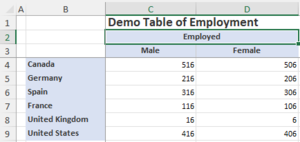Publication Table Web Services
@see Publication_Tables
Contents
Publication Table Definition
Get the Publication Table metadata, which is the definition of a Publication Table. A Publication Table definition is obtained via the standard SDMX web service for structural metadata, and as such the standard SDMX query syntax can be used to filter the results.
| Entry Point | /sdmxapi/v2/structure/publicationtable/{agency id}/{id}/{version} |
| Http Method | GET |
Example 1 - Get all publication tables
http(s)://myregistry/sdmxapi/v2/structure/publicationtable/all/all/all
Example 2 - Get specific publication table
http(s)://myregistry/sdmxapi/v2/structure/publicationtable/MY_AGENCY/MY_TABLE_ID/1.0.0
Example 2 - Get specific publication table and all descendants (Dataflow, DSD, Codelists, Concepts)
http(s)://myregistry/sdmxapi/v2/structure/publicationtable/MY_AGENCY/MY_TABLE_ID/1.0.0?references=descendants
Materialise Publication Table
Builds an instance of a Publication Table from the metadata and variables passed in. A materialised Publication Table has the variables replaced with text, and the Observation Keys are replaced with the observation values from the data store.
| Entry Point | /sdmx/v2/table/{agency}/{id}/{version} |
| Http Method | GET |
JSON Output Format
The default format for a materialised publication table is JSON, to explicitly request JSON set use the query parameter format=json
https://demo11.metadatatechnology.com/FusionRegistry/sdmx/v2/table/ECB.DISS/EXR/1.0?CURRENCY=CAD
Excel Output Format
The default format for a materialised publication table is JSON, to explicitly request JSON set use the query parameter format=xlsx
Query pararmeters
Set variable Dimension Values: The parameter is the Dimension ID and the parameter value is the Dimension Value to set it to. For example, if TIME_PERIOD and REF_AREA are both variable Dimensions in the Publication Table definition, their values can be passed like this.
http(s)://myregistry/sdmx/v2/table/MY_AGENCY/MY_TABLE_D/1.0.0?TIME_PERIOD=2019&REF_AREA=UK
Include Time Range: It is possible to include the time range in the Publication Table response using the includePeriod query parameter. This provides the earliest possible data and latest possible date for which there is data for the given Table (taking into account Dimension varaible values). This is an opt-in parameter as this information requires a secondary data query to the data store.
http(s)://myregistry/sdmx/v2/table/MY_AGENCY/MY_TABLE_D/1.0.0?TIME_PERIOD=2019&REF_AREA=UK&includePeriod=true
Publication Table Variable Availability
Defines the list of valid varaible values based on the current query. This query is based on the SDMX Data Availability Query and as such the response type is the same. The references parameter in the SDMX Data Availability Query has the same behaviour in the Publication Table Variable Availability Query.
Note, that the Time Period variable is not part of this response. The Time range can be obtained when materialising a table.
| Entry Point | /sdmx/v2/tableavailability/{agency}/{id}/{version} |
| Http Method | GET |
Example 1 - No variable parameters are passed, the response contains all variable values that have data
http(s)://myregistry/sdmx/v2/tableavailability/MY_AGENCY/MY_TABLE_D/1.0.0
Example 2 - Time Period set to 2019, variable values in the response are only included if they have data for this time period
http(s)://myregistry/sdmx/v2/tableavailability/MY_AGENCY/MY_TABLE_D/1.0.0?TIME_PERIOD=2019
https://demo11.metadatatechnology.com/FusionRegistry/sdmx/v2/tableavailability/ECB.DISS/EXR/1.0
